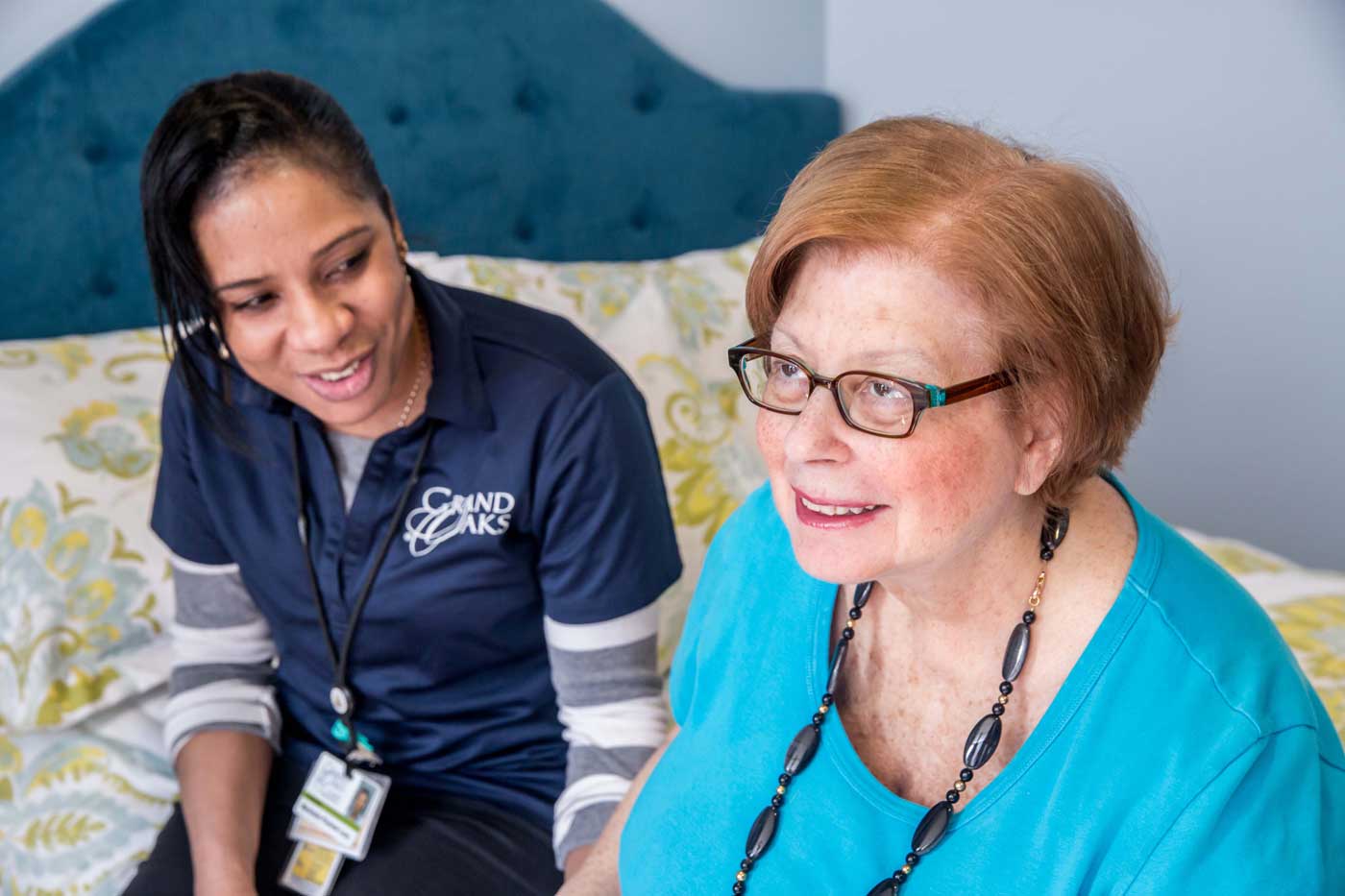4 Min Read
Is It Time for Assisted Living Support?

As a caregiver or family member, how do you know when it’s time to ask for additional help for your loved one, like assisted living support or memory care? If your loved one is exhibiting any of these signs, then it may be time to move to assisted living or find full-time care.
They’ve fallen recently.
Frequent falls are one of the most common signs your loved one may need assisted living. Issues with mobility and frailty occur with age, but when they become a safety hazard or your loved one is unable to get up and down stairs or from one place to another, they can be especially dangerous. If your loved one has fallen and struggled to get up or gotten hurt on more than one occasion, it may be time to talk about assisted living care.
Their chronic health conditions are getting worse.
Does your loved one seem to take longer to recover after getting sick or hurting themselves? Do they have a weakened immune system? Are their underlying or chronic health conditions getting worse, not better?
The first thing you should do is talk to your loved one’s primary care provider. Ask them about their medications, treatment, and whether additional assisted living support and care might be best for them. Assisted living facilities like Grand Oaks have on-site nursing care, plus wellness and prevention programs led by Johns Hopkins Medicine, so your loved one gets the medical help they need when they need it.
They’re unable to maintain tasks associated with daily living.
This includes everything from basic hygiene and dressing to transferring, feeding, and more. When your loved one has lost the ability to take care of themselves and their bathing or laundry, have suffered, this means it’s likely time for senior assisted living. Look for other warning signs like extreme weight gain or loss, messy grooming habits and extreme body odor, inability to properly care for their pets, or causing car accidents while driving.
They’ve experienced financial struggles.
Many seniors, especially those experiencing memory problems, have difficulty keeping up with financial responsibilities. If your loved one is not motivated to pay their bills, has difficulty doing taxes or handling money, was vulnerable to a financial scam, or has unpaid bills and insurance claims piling up, they may have underlying issues preventing them from doing so.
They’re self-isolating beyond current COVID-19 restrictions.
Socialization is a critical part of healthy aging. Seniors need other people—it’s good for their spiritual and mental health.
Despite current guidelines for social distancing, every senior should have friends and family they can connect with that share their mutual hobbies or interests. While this communication may look different right now (phone calls, letters, or video meetings), your loved one should still be engaged and play an active role in their relationships. If your loved one is completely alone, isolated, or uninterested in the friendships or relationships that once gave them joy, talk to them about what’s really going on.
They’re not taking medications or caring for their health as instructed.
Seniors can miss medications for a number of reasons: they can’t afford to buy them, are concerned about costs, or forget to take them. But when this happens repeatedly, or they’re ignoring the treatment plan or guidance of their primary care provider, it can be detrimental to their health and may indicate another underlying issue. Assisted living staff can make sure they take the medicine they need and personalize their care to their unique health goals.
They’re unable to maintain their current living situation.
Some seniors may have a lot to deal with around the house, especially if they haven’t rightsized yet. As they age, the upkeep may become more than they can handle. Moving to assisted or senior living facilities, where they don’t have to worry about maintenance and upkeep, might be a preferable option. Similarly, an untidy living space or poor cleaning habits could indicate that your loved one is unable to live on their own anymore.
Their mental health has worsened.
Have you noticed your loved one getting confused or lost when leaving their house, angry or violent when something upsets them, or seem unhappy? These are signs of dementia. Often, seniors with dementia and other memory problems benefit from memory care units designed to make their life easier, ease their anxieties and confusion, and improve their quality of life. A new living situation with additional care and support could make all the difference.
They lack a supportive community or social network.
Besides you, who regularly checks in or visits your loved one? Maybe a friend or neighbor who genuinely cares about them and keeps up regular social engagements or conversations?
If you’re the only person your loved one engages with, or you’re caring for them full time without help, it may become impossible for you to provide all the care, including social engagement, your loved one needs. If that’s the case, your loved one may benefit from assisted living, where they can socialize with other residents and staff and have a full network of support available to them.
Being a caregiver is hard work, and acknowledging that someone you love needs full-time care can be heartbreaking. But ignoring those tell-tale signs can be damaging.
Caregiving help comes in many varieties. Grand Oaks provides high-quality, award-winning assisted living care for seniors of all ages in a peaceful, home-like environment. Our assisted living support and memory care services are designed to help your loved one regain and maintain their independence while living their best life.

0 Comments